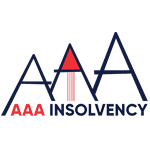Fate of Contractual agreement under IBC : Supreme Court
Tata Consultancy Services Pvt Limited (Appellant) entered into a agreement with SK Wheels Pvt Ltd (CD)on 1st December, 2016 whereby CD had to provide premises with certain specifications and facilities to the appellant for conducting examinations for educational institutions. Agreement contained a clause of termination with immediate effect in case material deficiencies are not rectified within 30 days.
Appellant wrote mails to CD for deficiency in services on several occasions before start of insolvency. Insolvency was admitted on 29th March, 2019. Thereafter again appellant wrote mails for deficiency and on 10 june, 2019 terminated the agreement. Resolution Professional (RP) approached NCLT vide misc application u/s 60(5) citing moratorium and also mentioned that 30 days notice period was also not given to CD.
NCLT heard the matter and opined that termination of agreement will have effect on insolvency process and moratorium is applicable after admission to insolvency. It further noted that 30 days notice was also not given and stayed the termination on 18/12/2019. Appellant approached appellate tribunal (NCLAT ) whereby NCLAT also upheld the order of NCLT on 24/06/2020 and termination of agreement continued to be stayed.
Appellant thereafter approached Hon’ble Supreme Court and placed the fact that termination was not made pursuance to start of insolvency and proper mails from time to time were given to CD. The deficiency were notified even prior to start of insolvency. It was also mentioned that moratorium is applicable on provision of goods and supplied to CD. Whereas in the instant case the provision of goods and services are used by appellant and not CD. Appellant also stated that third party has a legal right of termination even after start of insolvency.
Hon’ble Supreme Court heard the matter and concluded that third party right can not be done away with. The notice period of 30 days is not required as regular notices for deficiencies in services were given to CD even prior to insolvency. The termination of agreement will not bring corporate death of CD as this agreement was not the sole source of revenue for CD. Apex court pronounced the order on 23rd November, 2021 in favour of Appellant and cautioned NCLT and NCLAT regarding interference with a party’s contractual right to terminate a contract. Even if the contractual dispute arises in relation to the insolvency, a party can be restrained from terminating the contract only if it is central to the success of the Corporate insolvency resolution process. The jurisdiction of NCLT under Section 60(5)(c) of IBC cannot be invoked in matters where a termination may take place on grounds unrelated to the insolvency of the CD.
Article by CA. IP. Binay Kumar Singhania,
Senior Partner, AAA Insolvency Professionals LLP
